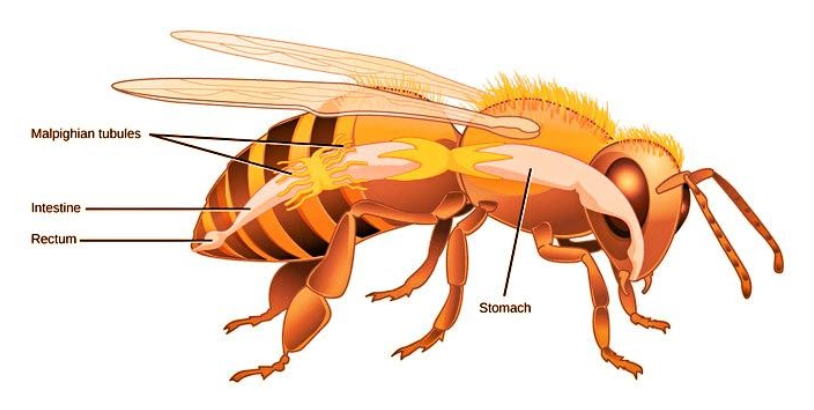
Excretory organs of cockroach are
A. Trachea
B. Kidney
C. Nephridia
D. Malpighian tubules
Answer
595.2k+ views
Hint: It is a type of excretory system that helps in the maintenance of osmoregulation and is found in some of the insects.
Complete step-by-step answer:
Cockroaches are insects belonging to the phylum Arthropoda, which are dark brown and inhabit the unhygienic places. The metabolic waste of their body is excreted by ciliated and glandular malpighian tubules.
Additional Information:

-The excretory system present in them is the malpighian tubules which consist of a branched network. The network is the extension of the alimentary canal which helps in the absorption of water and solutes and also in the removal of the wastes from the hemolymph.
-The wastes are then released from the organism in the form of solid nitrogenous compounds and calcium oxalate.
-The branched network system of malpighian tubules was named after the anatomist in the seventeenth-century, Marcello Malpighi.
-They are slender tubes normally found in the posterior regions of the alimentary canal of the arthropod.
-Most tubes are normally highly convoluted and differ according to the species.
-They contain actin fir structural support and microvilli for the propulsion of substances along the tubules.
-Wastes such as urea and amino acids are transported by the distal part of the tubules.
-Almost solid uric acid is finally eliminated with the feces after reabsorption.
So, the correct answer is ‘Malpighian tubules’.
Note: Various organisms have different types of the excretory system. Nephridia is the excretory organ in the case of earthworm (annelid) which is made up of coiled tubes that open in the body cavity. Invertebrates, the kidney is the organ of excretion. The neh=phron is the basic structural and functional unit of the kidney.
Complete step-by-step answer:
Cockroaches are insects belonging to the phylum Arthropoda, which are dark brown and inhabit the unhygienic places. The metabolic waste of their body is excreted by ciliated and glandular malpighian tubules.
Additional Information:

-The excretory system present in them is the malpighian tubules which consist of a branched network. The network is the extension of the alimentary canal which helps in the absorption of water and solutes and also in the removal of the wastes from the hemolymph.
-The wastes are then released from the organism in the form of solid nitrogenous compounds and calcium oxalate.
-The branched network system of malpighian tubules was named after the anatomist in the seventeenth-century, Marcello Malpighi.
-They are slender tubes normally found in the posterior regions of the alimentary canal of the arthropod.
-Most tubes are normally highly convoluted and differ according to the species.
-They contain actin fir structural support and microvilli for the propulsion of substances along the tubules.
-Wastes such as urea and amino acids are transported by the distal part of the tubules.
-Almost solid uric acid is finally eliminated with the feces after reabsorption.
So, the correct answer is ‘Malpighian tubules’.
Note: Various organisms have different types of the excretory system. Nephridia is the excretory organ in the case of earthworm (annelid) which is made up of coiled tubes that open in the body cavity. Invertebrates, the kidney is the organ of excretion. The neh=phron is the basic structural and functional unit of the kidney.
Recently Updated Pages
Master Class 11 Computer Science: Engaging Questions & Answers for Success

Master Class 11 Business Studies: Engaging Questions & Answers for Success

Master Class 11 Economics: Engaging Questions & Answers for Success

Master Class 11 English: Engaging Questions & Answers for Success

Master Class 11 Maths: Engaging Questions & Answers for Success

Master Class 11 Biology: Engaging Questions & Answers for Success

Trending doubts
One Metric ton is equal to kg A 10000 B 1000 C 100 class 11 physics CBSE

There are 720 permutations of the digits 1 2 3 4 5 class 11 maths CBSE

Discuss the various forms of bacteria class 11 biology CBSE

Draw a diagram of a plant cell and label at least eight class 11 biology CBSE

State the laws of reflection of light

Explain zero factorial class 11 maths CBSE




